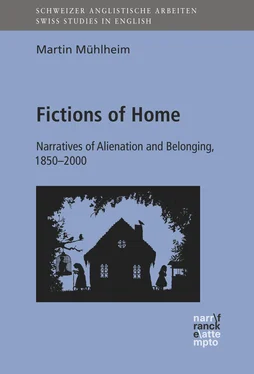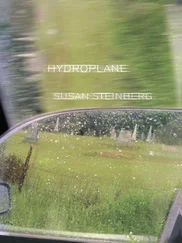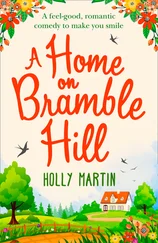The only way to avoid sufferingsuffering, FeuerbachFeuerbach, Ludwig argues, would be entirely to quench our feelings – that divine, “musicalmusic power in man” which defines what it means to be truly human.
What underlines this philosophical connection is that FeuerbachFeuerbach, Ludwig’s musicalmusic metaphormetaphor repeatedly resurfaces in The Mill on the Floss. For instance, there are echoes of FeuerbachFeuerbach, Ludwig’s metaphor in what Philip says to Maggie shortly after his attack on asceticasceticism selfself-denialdenial:
I think there are stores laid up in our human nature that our understandings can make no complete inventory of. Certain strains of musicmusic affect me so strangely ; I can never hear them without their changing my whole attitude of mind for a time, and if the effect would last, I might be capable of heroisms. (248; bk. 5, ch. 1; emphasis added)
Like FeuerbachFeuerbach, Ludwig, Philip here associates musicmusic both with our deepest feelings and our most heroic or divine powers.119 Moreover, listening to Philip’s pleas, Maggie herself feels as if “music would swell out, […] persuading her that the wrong lay all in the thoughts and weaknesses of others, and that there was such a thing as futile sacrificesacrifice” (247; bk. 5, ch. 1). Similarly, toward the end of the novel, Philip assures Maggie in a moving letter that she has been, to his affections, “what light, what colour is to my eyes – what music is to the inward ear” (407; bk. 7, ch. 3). The musicalmusic imagery here becomes linked to the appreciation of light and colour, and hence with the “delight in fine pictures” that Philip had mentioned earlier on. In this way, the novel associates desiredesire and longing with a thirst for the beautiful, the good, and the true – with, in short, the classical ideal of BildungBildung as a culture of the selfself that is entirely incompatible with an asceticasceticism philosophyphilosophy of self-denialdenial (BoumelhaBoumelha, Penny 26–27).
Philip thus in one sense (re-)awakens Maggie’s desires for knowledgeknowledge and culture, and we may note in passing that his last name is, tellingly, Wakem (‘wake ’em’). At the same time, however, The Mill on the Floss portrays desiredesire itself as related to that dissolution of the conscious selfself that is characteristic of sleep and dreams. For instance, at one point we find little Maggie, who continually thirsts for the knowledge that can be gained from reading, “dreaming over her book” (15; bk. 1, ch. 3). Similarly, when she later runs off to join a group of gypsiesgypsies, the experience at first seems to her as if “rehearsed in a dream” (91; bk. 1, ch. 11) – and we have seen that the episode as a whole can be read as a version of the Freudian family romancefamily romance. Moreover, romanticromance lovelove and sexual fulfillment, too, are associated with dreams, for the idea that she could ever have a lover seems to Maggie “like a dream – only one of the stories one imagines” (272; bk. 5, ch. 4). Significantly, towards the end of the novel, Maggie must literally wake up from “vivid dreaming” before she can bring herself to decide against an elopement with Stephen Guest (381; bk. 6, ch. 14). Susan J. Rosowsksi’s description of the ‘female BildungsromanBildungsroman ’ as typically revolving around a woman’s awakening to limitationslimitations thus proves particularly accurate for The Mill on the Floss , in which Maggie’s dreamlike desires clash, time and again, with the limitations imposed by reality.120
And yet, while this may suggest that the novel attempts to expose the insubstantiality of dreamsdreams by portraying them as the binarybinary oppositions opposite of a realistic outlook on the world, the text in fact explores the complex interrelatedness of the “triple world of Reality, Booksbooks, and Waking Dreams” (225; bk. 4, ch. 2). We have seen, for instance, that booksbooks do inspire some of Maggie’s dreamsdreams and desires. At the same time, however, Maggie is also very well aware of the unrealistic conventionsconventions of popular romancesromance, where the “blond-haired young lady” invariably triumphs over the “dark woman” (270; bk. 5, ch. 4). Northrop Frye’s claim that “romanceromance is nearest of all literary forms to wish-fulfillmentwish-fulfillment and dream” (186) is, therefore, not exactly true for Maggie, who is herself one of those dark women whose desires continually end up thwarted in popular romancesromance. Accordingly, Maggie formulates her dreamsdreams in direct opposition to conventionalconventions romancesromance, voicing the hopehope that she herself might one day be able to avenge all these “dark unhappy” heroines (270; bk. 5, ch. 4). Philip, who is passionately in lovelove with Maggie, teasingly assures her that she could easily win a handsome young man away from a pretty, blond-haired woman such as her cousin, Lucy – and this is, of course, precisely what will happen in Eliot’s novel. Maggie eventually wins Stephen Guest’s love from pretty, blond-haired Lucy and, in this way, fulfills her daydream fantasyfantasy of revengerevenge. In The Mill on the Floss, Maggie’s dreamsdreams and desires thus not only take shape in relation to both everydayeveryday domestic reality and the imaginary worlds described in booksbooks; they also have an uncannyuncanny way of coming true, and of shaping the course of her own life.
The Tragedy of Wish-Fulfillment
This realization may in turn help us understand the novel’s much-discussed, dream-like ending, in which Maggie and her brother Tom drown in a flood, and which is highly problematic when read in realistrealism terms of narrative coherencecoherence and probability. Henry James, for instance, is one of many critics who have been uncomfortable with the novel’s dramatic conclusion, and highly suspicious of its artistic merits: “As it stands, the dénouement shocks the reader most painfully. Nothing has prepared him for it; the story does not move towards it; it casts no shadow before it” (465). In a similar vein, F.R. LeavisLeavis, F.R. suggests that the novel’s ending belongs to “another kind of art” than the preceding sections; the flood in which Tom and Maggie perish constitutes a “ dreamed-of perfect accident,” but has “no symbolic or metaphoricalmetaphor value” (488; my emphasis). Less judgmentally, Jane McDonnellMcDonnell, Jane remarks that The Mill on the Floss moves from a realistic portrayal of Maggie towards a more supernatural mode of representationrepresentation typical of such genres as the fairy tale or romanceromance (400).
While Penny BoumelhaBoumelha, Penny agrees that the novel’s ending abandons the realistrealism mode, she is one of the few critics who also notes the crucial, metafictionalmetafiction effect of such a “flagrantly fantasied and contrived” conclusion:
It acknowledges and makes unusually visible the formalform and content-cum-ideological impasse that the novel has reached by virtue of its concentration on the development of a woman for whom no meaningful future […] can be imagined. It breaks out of this impasse only by sweeping the novel out of its realistrealism mode altogether. (29)
According to BoumelhaBoumelha, Penny, the ending of Eliot’s novel serves to expose “the restricted possibilities of the world as it could be imagined by realismrealism,” and the shift to a world of fantasyfantasy and wish-fulfillmentwish-fulfillment thus constitutes a critique of classic realismclassic realism’s unacknowledged limitationslimitations (32–33).121 By flaunting the contrived nature of its conclusion – the flood arrives at the very moment of Maggie’s utmost despair, when she wonders “how long it will be before death comes” (417; bk. 7, ch. 5) – The Mill on the Floss problematizes its status as fiction and highlights the link between generic conventionsconventions, narrative closureclosure, and ideologyideology.122
Читать дальше












